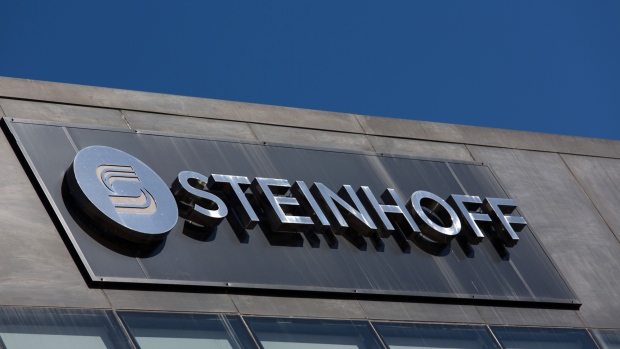Aug 20, 2019
Steinhoff’s Legal Woes Leave Very Little for Those Holding Stock
, Bloomberg News

(Bloomberg) -- Steinhoff International Holdings NV may have about 15 billion euros ($16.6 billion) of assets and stakes in profitable companies such as Pepkor Holdings Ltd., but you won’t see that reflected in the share price.
The market capitalization of the embattled retailer languished at an all-time low of 239 million euros on Tuesday, suggesting shareholders have little chance that the proceeds of any future disposals will feed through to them. That’s even after Steinhoff agreed a much-delayed debt restructuring plan last week.
There’s one main reason for that: Litigation.
Steinhoff has highlighted a lengthy list of lawsuits as a significant threat to its ability to operate as a going concern. The claims amount to at least 6.2 billion euros and include a 59-billion rand ($3.8 billion) demand from former Chairman Christo Wiese.
All relate to the accounting scandal that engulfed the owner of Conforama and Poundland in late 2017, which left a number of individuals and companies out of pocket and caused the share price to collapse.
“The problem is the litigation hanging over Steinhoff -- it is just astronomical,” Cratos Capital analyst Ron Klipin said by phone. Even if the company is able to settle the claims favorably, “there’s still the time attached to these claims -- it can take the next three, five, or even 10 years,” he said.
Steinhoff in April called for potential claimants to come forward and plans to settle all demands as quickly as possible, Chief Executive Officer Louis du Preez told investors last week. Any potential payouts haven’t yet been provided for as the company is still assessing their validity. Steinhoff has also initiated litigation of its own, including against former CEO Markus Jooste and an entity called Top Global.
Lawsuits replaced debt as Steinhoff’s most pressing concern after the retailer struck a deal with creditors to skip principal and interest payments on about 9 billion euros of debt through 2021. Even so, the borrowings will still eventually need to be repaid, and asset disposals are expected.
The debt load “needs a combination of repayment from further asset sales and restructuring from a debt-to-equity swap,” said Mark Hodgson, an independent Cape Town-based retail analyst. But for the swap to work the litigation uncertainty needs to be largely resolved, he said.
“It’s unclear how much there will be left for shareholders, between the excessive debt situation and the legal fees,” Hodgson said.
The shares traded 5.6% lower at 6 euro cents as of 2:46 p.m. in Frankfurt.
To contact the reporters on this story: Loni Prinsloo in Johannesburg at lprinsloo3@bloomberg.net;Janice Kew in Johannesburg at jkew4@bloomberg.net
To contact the editors responsible for this story: Eric Pfanner at epfanner1@bloomberg.net, John Bowker, John Lauerman
©2019 Bloomberg L.P.